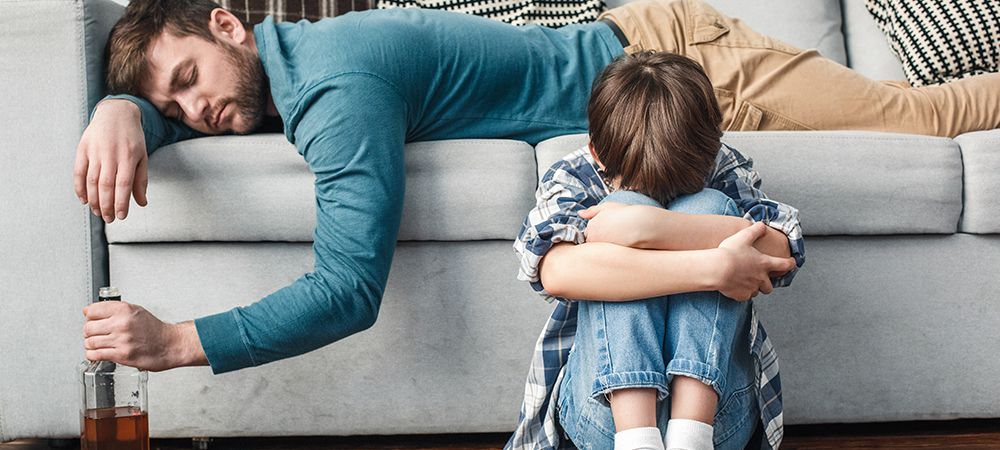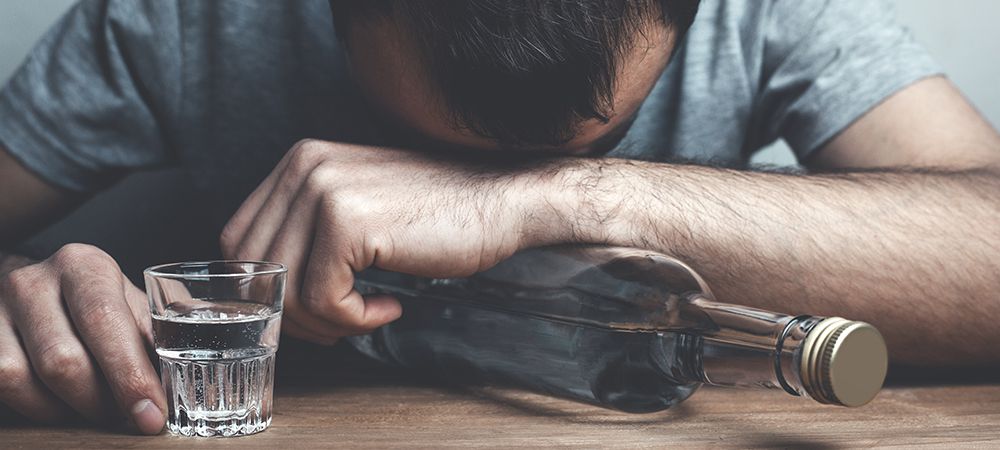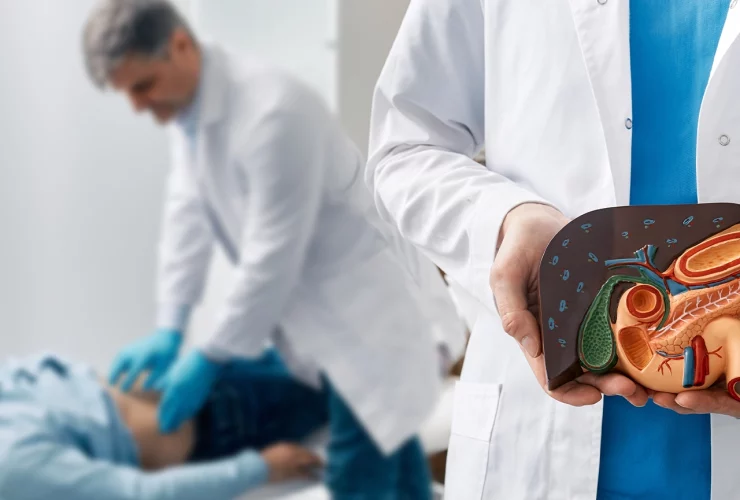How To Tell If You’re An Alcoholic
Knowing if you’re an alcoholic or a casual drinker isn’t that easy. In Canada, many people take alcohol to bond, socialize, relax and celebrate. It’s not also uncommon to find people drinking or sharing alcohol at any time. Therefore, drinking as a problem may not seem like a topic of concern to most individuals.
However, the effects of alcohol abuse can become detrimental over time. Unlike drugs, people overlook the signs of alcoholism and regard it as mild. Not to mention, there are many stereotypes about it which makes people think they don’t have an alcohol addiction. Not all addicts spend an excessive amount of time taking alcohol, neither are they homeless.
Most times, they have a stable job and a loving family. So how can you tell you’re an alcoholic? Several signs can help you identify alcohol abuse and take the decision to seek help. There are early and physical symptoms that can enable you to help yourself or a loved one. If your drinking bothers you, keep reading to know the warning signs and stages of alcoholism.
Difference Between Casual Drinking and Alcohol Use Disorder
To begin with, having a few drinks with your friends doesn’t make you an alcoholic. Aside from personal and religious constraints, a casual drinker is someone who consumes alcohol in moderation. By moderation, we mean only when the need arises for you to drink alcohol—for example, enjoying wine with family or celebrations.
Now casual drinking becomes an issue when you start abusing the substance. It begins when you have dependence and a constant pattern of excessively drinking alcohol. Most individuals use the words “alcoholism” and “alcohol abuse” interchangeably. However, alcohol abuse is a behavior pattern of excessively consuming alcohol despite the negative effects.
Alcoholism refers to forming dependence or addiction on a substance. With alcoholism, you have a psychological or physical compulsion to take alcohol. People with alcoholism need to drink to function normally.
Signs and Symptoms You’re An Alcoholic
When ignored, alcohol abuse can go from a minor issue to dangerous over time. The negative effects of alcohol do not only pose health risks, but they also affect your personal life. Most times, it’s hard to tell when a few drinks turn into many.
While there’s no hard rule to determine the symptoms, there are telltale signs that often co-occur. According to the Diagnostic and Statistical Manual of Mental Disorders (DSM), there are 11 symptoms of alcohol abuse. These common signs and symptoms should help you answer the recurring question, “Am I alcoholic?” They include:
- Frequently consuming a larger quantity of alcohol for a long period.
- Continuous drinking despite experiencing depression, short-term memory loss and constant blackouts.
- Taking alcohol alone or in secrecy
- Drinking at ungodly hours.
- Experiencing strong alcohol cravings or urge to drink.
- Failure to cut back alcohol intake.
- Suffering withdrawal symptoms
- Living in isolation and becoming distant from your loved ones.
- Constantly making excuses to take alcohol, such as to deal with stress or relax.
- Facing issues at school, work, home or other commitments due to hangovers from drinking.
- Noticing you don’t feel the same effect when you drink the usual amount of alcohol.
Whether it’s you or you’re a loved one of someone struggling with alcoholism, it’s ideal you’re conscious of these symptoms. Experiencing at most three of these signs of alcoholism means you’re suffering from alcohol use disorder (AUD). Know that the number of symptoms you experience determines the severity of alcoholism.
Early symptoms of alcoholism
Your chances of becoming an alcoholic are slimmer when you treat it quickly. Unfortunately, the common symptoms of alcohol abuse may not apply to everyone. Some people seem to have a functional life despite their addiction. Besides, most individuals with alcoholism do not camp out at bars and clubs. So how can you tell?
The earliest sign is the habit of excessive drinking. There are two kinds of excessive drinking. They are heavy drinking and binge drinking. Heavy drinking becomes a problem in females when they take nine or more drinks a week. For males under 60, it’s taking 15 drinks or more than the standard drink in a week. Heavy drinking also relates to people who can hold their alcohol.
By this we mean, individuals who have a tolerance to the substance (they don’t get drunk easily). At the same time, binge drinking is when you drink a large quantity of alcohol at a go. For males, it’s drinking over five liquor bottles in an hour. For women, it’s consuming more than four liquor bottles within that same hour.
Excessive drinking doesn’t often mean you have an alcohol addiction. But, it puts you at risk of unknowingly developing it. More early symptoms include drinking in dangerous situations such as driving, getting intoxicated, becoming angry or violent when drinking.
Physical symptoms

- Excessive sweating when you don’t take alcohol.
- Poor hygiene
- Broken capillaries on the nose and face.
- Yellow skin and eyes as a result of liver damage
- Weight loss due to drinking rather than eating
- Having insomnia without taking alcohol
- Nausea and vomiting
- Scaly skin, brittle nails and hair
- Change in appearance such as fast aging and skin wrinkles
- The alcohol stench which lingers on your breath after heavy drinking
Social symptoms
- Extreme irritability and mood swings
- Having a guilt feeling while drinking
- Losing interest in activities you formerly enjoyed
- Giving drinking priority over other responsibilities
- Consuming alcohol immediately you wake up in the morning
- Keeping late nights at pubs and bars to take alcohol
- Drinking in places that require sobriety, like burial grounds and churches.
Related Article: How Do I Know When I Need Alcohol Addiction Treatment?
Common Withdrawal Symptoms Of Alcohol Addiction
Alcohol addiction is the mental or physical dependence on alcohol. If you constantly try to cut back on drinking without succeeding, you’re not only an alcoholic, but you’re also experiencing alcohol withdrawal symptoms. When you regularly drink alcohol, your body adjusts to the effects.
Therefore, the abrupt discontinuation will cause abnormal psychological and physical features. Experiencing withdrawal symptoms makes it difficult for people to perform without taking alcohol. It also affects your work rate at school and other obligations. Most people even sneak to drink alcohol to relieve their withdrawal symptoms.
Below are the common withdrawal symptoms of alcohol:
- Having foggy thought
- Depression
- Irritability
- Shakiness or jumpiness
- Mood swings
- Clammy or pale skin
- Nightmare
- Fatigue
- Loss of appetite
- Sweating
- Nervousness or anxiety
- Fast heartbeat
Withdrawal symptoms don’t occur immediately after you stop taking alcohol. It may sometimes take hours or days for them to happen, and they get worse with time. In severe cases, you may suffer delirium tremens. It causes fever, confusion, seizures, hallucinations and confusion. Hence, it’s important for people who drink excessively to end these symptoms by seeking alcohol addiction treatment.
Stages of Alcoholism
Understanding the four phases of alcohol use disorder will help you determine if you’re an alcoholic. You should take every sign of alcoholism seriously because it’ll help you explore available treatment options. In Canada, over 18 million adults, as well as youths, struggle with alcoholism. Since the reality of alcohol addiction is quite complex, these stages should enable you to understand its impact.
Mild stage: Increased drinking
During the first stage, there’s little or no evidence of addiction. Most of the behaviors during this phase appear as casual drinking to an observer. However, drinking larger amounts begins as a way of reducing stress. Additionally, you may start to drink out of boredom, anxiety and sadness.
One major psychological feature of this stage is when you begin to develop a higher tolerance for alcohol. Eventually, your tolerance will cause intoxication. If you’re drinking to numb physical pain or forget painful memories, you’re likely at the first stage of alcoholism. At this point, you may frequently experience blackouts due to heavy drinking.
Early alcoholic: Dependence and cravings
At the early stage, the signs of alcoholism become obvious. It comes with increasing discomfort and the inability to stop drinking. During this period, you may begin to spike your coffee and juice with alcohol.
Undoubtedly, your heavy drinking will lead to dependence which will make you crave alcohol. You may also obsess about drinking or how to acquire it—besides, dependence on alcohol results in withdrawal symptoms.
 Middle alcoholic: Severe alcohol use and addiction
Middle alcoholic: Severe alcohol use and addiction
In the middle stage, both addiction and physical dependence are present. Individuals at this point are likely to meet the DSM-V criteria for acute alcohol addiction. You may become irritable and argue incessantly with your family or friends. You may also experience bodily changes like stomach bloating, facial redness and weight loss.
People at this stage make several attempts to stop drinking. Some even attend support groups to cope with the signs of alcohol abuse. Indeed participating in support groups is an effective way to treat alcohol addiction. But it’s futile if other forms of treatment do not accompany it. The middle alcoholic stage poses risks to your mental and physical well-being. You’re also likely to experience anxiety and depression.
Late alcoholic: loss of control
Reaching the late alcoholic stage means the effects are apparent. It’s a frightening phase because you begin to lose control over your drinking. Despite experiencing several medical problems, you can’t help but drink. In fact, drinking alcohol becomes a lifestyle. Your drinking also begins to interfere in the lives of your friends and family.
If job loss or relationship breakup hasn’t occurred, it’s likely to happen at this point. Diseases caused by alcohol may develop, such as dementia or liver cirrhosis. Another characteristic of this stage is paranoia. You’re likely to experience hallucinations or tremors. Late phase alcoholics may also become overly fearful for no reason.
At this point, most people believe there’s no solution or real chance for recovery. Although it may be painful or difficult to attempt recovery, the reality is alcoholism is treatable. The last stage of alcohol use disorder is often treated with detoxification, rehabilitation and therapy.
Treatment for Alcohol Use Disorder
Knowing how to recognize alcohol addiction may not seem easy. But with rapt attention, you can quickly identify the symptoms. Therefore we implore you not to ignore any of these signs. If you care about your health or your loved one, it’s ideal you seek professional treatment at the slightest symptom.
By seeing a professional, you can determine the type of detox program that’ll help. Depending on the severity of your addiction and your needs, there are several kinds of supportive resources and treatment options available. They include:
- Outpatient and inpatient treatment: These are the most effective treatment for overcoming alcohol abuse. They involve medications, behavioral therapy and attending support groups.
- Withdrawal and detox: Under this program, you’ll receive 24/7 medical supervision to safely help your body adjust without drinking. It’s the most effective treatment if you’re experiencing withdrawal symptoms.
- Support groups: These types of groups allow you to connect with people suffering from alcoholism. With support groups, individuals who understand your struggles act as your support system.
- Therapy and counseling: These treatment options help you manage your cravings and emotions without experiencing a relapse. Here, you’ll develop a sense of judgment on how to control your constant desire to drink.
- Medical treatment for other conditions: Most people with alcohol addiction abuse other substances. Medical treatment helps you manage and cure the effects associated with both alcohol and drugs.
However, the best option to receive treatment and adequate support is an inpatient rehab program. It provides you with intensive care, which combines medical and psychiatric treatment in a residential facility. Under this program, you have a structured and safe environment to recover properly. Compared to other treatment options, the chances of experiencing a relapse are slim with an inpatient program.
Related Article: Alcohol Addiction Treatment: Is There a Way to Change?
Conclusion
Discovering you’re an alcoholic may be surprising and unbelievable. After all, you didn’t fit the stereotype of alcohol addiction. However, there’s no reason to panic because you’re not alone.
Lifelong recovery is possible. You’ve taken the first step by admitting you need help. Let us help you to find the best support you require. The earlier you get treatment, the sooner you’ll be in a better place. Don’t hesitate to let your body and mind heal while you improve and regain control over your life.
If you’re an alcoholic or you’re bothered about someone who may be, contact us today. Here at Inspire Change Wellness Centre, we’ll assist you in finding an option to suit you or your loved one.


 Middle alcoholic: Severe alcohol use and addiction
Middle alcoholic: Severe alcohol use and addiction
